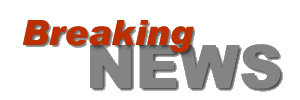
PRESS KEPT OUT OF GROUP OF EIGHT SUMMIT
DANGEROUS PRECEDENT FOR FUTURE COVERAGE OF GOVERNMENT FUNCTIONS
By David M. Bresnahan
June 27, 2002
NewsWithViews.com
CALGARY, Canada -- While the leaders of the Group Eight meet in the mountain resort of Kananakis, the media are being kept confined two hours away in a Calgary office building.
Spokesmen for the countries involved travel to the office building to give briefings, and sometimes only give reporters access to them over telephone conference calls.
"There's a much larger separation than is typical for a summit. And that was a decision that was made consciously last year after Genoa to be able to create a different environment for the summit," said White House Press Secretary Ari Fleischer in a futile attempt to justify the closed summit.
CBS White House Correspondent Bill Plante told UPI the inability to have media present at the summit sets a dangerous precedent for future access to similar events.
"I am certain the president would have wanted us there for his announcement on the court decision," Plant said referring to Bush's reaction to the ruling that the Pledge of Allegiance was unconstitutional. "But this suits their purpose. They get to control the media."
The media are not able to see and hear what is happening first hand to act as the eyes and ears of the public. They rely on reports from government spokesmen who tell them only what they want them to know. Despite this, some European reporters did not complain of the arrangements.
Olivier Knox, a reporter with Agence France Press, said that the separation did not affect his coverage of the summit.
Last year demonstrators in the streets around the G8 conference shut down businesses during violent protests that left one protester dead. Police in riot gear had to use tear gas and rubber bullets. The protests were over globalization policies.
The remote setting of the meeting provides for greater security and a more informal setting for leaders to talk. Fleischer said Bush and British Prime Minister Tony Blair spent 20 minutes in the hotel gym.
"So that's the type of informal setting that was sought in the original G8s that evolved away, and with apologies to the press for the logistics and for the separation that denies you the opportunity to kind of feel this and see this texture yourselves, that is now the result of it, however," Fleischer said.
So reporters are confined with security concerns the excuse for not providing access to meetings where decisions effecting the entire world are being made. Journalists receive e-mail transcripts of news conferences, such as a brief one given by Bush, Blair, and Canadian Prime Minister Jean Chretien.
In the media room in Calgary there are to small televisions and a large projection screen showing the summit, but there is no sound.
Even the few pool reporters who travel to the meeting location are not getting access to the leaders, and get nowhere near Bush.
"It was only a matter of time, perhaps, but what passes for White House coverage these days have finally devolved into a Lewis Carroll absurdity in which White House correspondents can travel on a three-day foreign trip and never once lay eyes on the president -- not even if they draw a 12-hour pool assignment," wrote Bob Deans of Cox News in his report to fellow members of the media corps, according to UPI.
In his e-mail to other reporters, Deans, who was in Kananaskis, said he could not even find out what summit leaders had for lunch.
"Don't worry about what they ate. We'll be told that by a [National Security Council] official when he briefs later. (I am not making this up.)," Deans wrote.
Next year the G8 meet in France. Perhaps journalists will just stay in their own news rooms and get their e-mail briefings there. Freedom of the press has been reduced to being free to write what government leaders tell them.
© David M. Bresnahan - All Rights Reserved
David M. Bresnahan David@InvestigativeJournal.com is an award-winning independent investigative journalist. He maintains an archive of his work at http://www.InvestigativeJournal.com and offers a free e-mail alert so you will not miss any of his news stories or commentaries.

